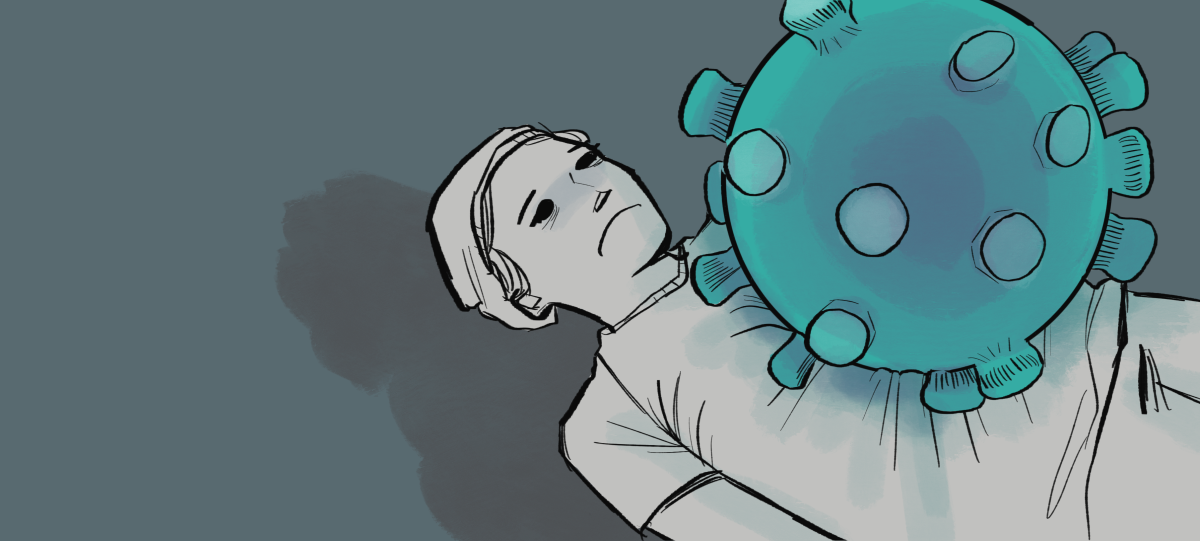I’ll never forget the moment my sister called my phone to tell me she contracted the coronavirus and most likely gave it to me. My chest tightened, panic and uncertainty washed over me as I wondered what would happen to us both.
It was the week after Thanksgiving and I left San Jose to see my family after testing negative for COVID-19.
By the time my sister called with the news, I had already spent the night at a friend’s house. I immediately informed my friend and we got tested together.
Guilt consumed me knowing I could’ve passed the virus to loved ones.
Fortunately, my friend tested negative, but I tested positive.
In a state of panic and shock, I drove back to my family’s house to avoid openly spreading the virus.
My sister and I didn’t know what to expect, so we did our research and talked with nurses and contact tracers to prepare for 10 days of quarantined isolation.
After months of hearing horror stories about the virus’ symptoms, my mind was blurred with awful scenarios of what could happen to my sister and me.
Was I going to end up on a ventilator in the hospital fighting for my life? Was my family going to suffer the same fate?
I’m grateful that wasn’t the case for my family or I, but even the mild symptoms I experienced were paralyzing.
Everything I smelled and tasted became metallic and it was nauseating.
Shortly after, those senses completely disappeared.
While it was relieving to get rid of the metallic smell and taste, the loss of those senses is indescribable.
The scariest moments were when my breath would suddenly hitch and I couldn’t breathe.
It felt as though someone was sitting on my chest and I was gulping and gulping to get air into my lungs, but it was impossible.
These episodes only lasted a few minutes at a time, but they still left me shaky and physically and emotionally exhausted.
COVID-19 felt like an awful flu made worse by sensory deprivation and occasional episodes of asphyxiation.
The body aches and fatigue were enough to make anyone bedridden, but those symptoms were short-lived unlike my loss of smell.
I’ve been COVID-19 free for more than three months now, but my sense of smell is still almost completely gone.
When I can smell something, the fragrance only lasts a few seconds.
I find myself smelling phantom scents that either aren’t there or are inaccurate. The most notable and frustrating mixup has been my fruity shower products now smelling like cannabis.
The long-term effects of COVID-19, including extended loss of senses and “brain fog,” are mentally tough to handle. I’ve only recently felt my “brain fog” lift.
“Brain fog” is a common lingering effect that causes patients’ thoughts to become fuzzy and incomplete, according to an Oct. 10, 2020 New York Times article.
It was hard to participate in daily life for a long time because I couldn’t form complex thoughts, remember things or stop myself from losing focus.
I was extremely lucky that mine and my family’s symptoms were minor but I’m still deeply afraid of COVID-19.
People who minimize the severity of the virus are either lucky or ignorant.
I’ve been cautious and conscientious throughout the pandemic but it only took one slip-up for me to get infected.
It’s easy for people to get tired of being quarantined and stop caring about the risk, but lives are at stake.
We’re finally making progress toward eradicating the virus and we must keep going.
Thankfully, vaccines are becoming increasingly available and cases are declining.
I wouldn’t wish COVID-19 on my worst enemy.









































